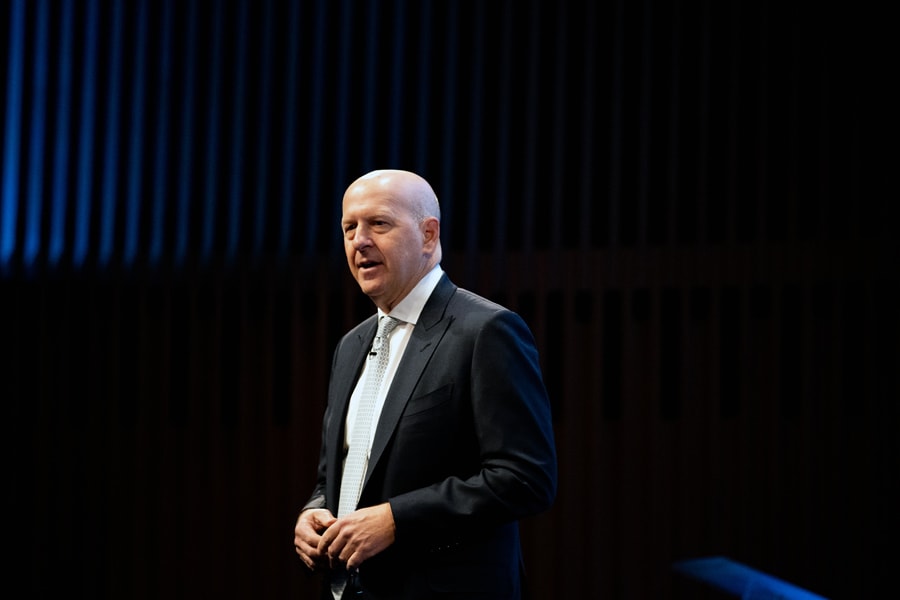
Wall street is finally getting access to China. But for how long?
Wall Street banks are gaining ground in China just as a property crisis is brewing, and as its financial system is beginning to reel under the weight of a years long debt-fuelled corporate boom
 David Solomon, chief executive of Goldman Sachs, speaks at a conference in New York on Jan. 29, 2019. Solomon has acknowledged that the politics around doing business in China “are going to be complicated.” (Jeenah Moon/The New York Times)
David Solomon, chief executive of Goldman Sachs, speaks at a conference in New York on Jan. 29, 2019. Solomon has acknowledged that the politics around doing business in China “are going to be complicated.” (Jeenah Moon/The New York Times)
For decades, U.S. banks have been eager to expand their business in China, the world’s second-largest economy. They’re finally getting their way — just as a spiraling corporate debt crisis threatens to rock the country’s financial system and China’s central government takes a stronger hand with big businesses.
In July, Citigroup became the first foreign bank to win approval to open a custody business in China, essentially acting as a bank for Chinese investment funds. In August, JPMorgan Chase got permission from the Chinese authorities to take full ownership of its investment banking and trading business in the country — a century after it first opened shop there. Goldman Sachs received the green light for a similar venture in October.
As the approvals came in, the message from Beijing was clear: It wanted U.S. lenders to bring more foreign investors into China and help Chinese people buy assets overseas.
Thrilled that they no longer have to split profits with local partners for services like underwriting equity deals or providing advice to companies, Wall Street banks are rushing to oblige. They want to broker more transactions, help Chinese companies raise funds and manage money for the country’s rapidly growing moneyed class. The total wealth of China’s 100 richest people increased to $1.48 trillion in 2021 from $1.33 trillion a year earlier, according to Forbes.
“Obviously, what we can do in China is largely dictated by how the Chinese government allows us to operate,” David M. Solomon, CEO of Goldman Sachs, said in an interview last month. “We’re encouraged by the fact that after a long period of time they’re allowing us to control our joint venture.”
©2019 New York Times News Service







